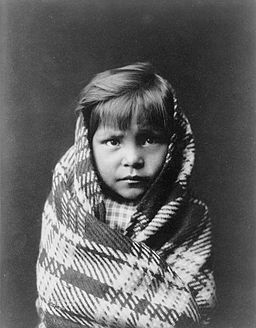
By Normand Charest
In his book The Wolf at Twilight, American author Kent Nerburn accompanies a Lakota “Indian Elder” on his “journey through a land of ghosts and shadows.” In these pages, the elder transmits his reflections and knowledge to the white author, who writes them down.
Pertaining to education, the Elder says things which the child in us would approve of. Do you really think that little children really want to sit and study wisely in schools? They would learn more by observing everything nature has to offer, including the example of adults that they try to imitate. Because that is how they learn.
Further on, he adds that the Creator has given people the talents proper to them. To Whites, noting things in books. To Natives, the talent to hear nature. “These are different talents, just as there are different ways of understanding the Creator… Would you like to destroy the particular ways of other peoples? I don’t think so, because then you would be destroying part of the Creator’s truth.”
To the author who tells him that these are really lovely words, he says “All that is true is beautiful, because all that is true comes from the Creator.” Who can say that this isn’t great wisdom? Who can say that this thought is primitive?
A return to our origins: “You have already thought this way, but you have forgotten.”
While each people has been endowed with a particular talent, it must be acknowledged that many have distorted it along the way. It is up to each one of us to find their forgotten talent. This is true for each individual and each people. For that, we have to look, observe, listen to all that is inside of us and around us.
And the wise statements that we have just read can inspire us in our search for deeper and more enduring principles. Sometimes they take us back to our origins, before the great technological and materialistic evolution, when we were still close to natural values.
Already during our youth, we feel attracted by stories of Natives who could read animal tracks. And these stories fascinate us, as humans and animals converse and understand each other, like brothers. As well as the initiations through which the boy had to find his adult name, as well as his mission in this life.
For the child inside of us is close to these first eras of humanity. And the child guides us in this return to a closer bond with nature, and with the Creator. A bond of love and respect. If we haven’t already, we will then find our true place in the universe. Both more modest and greater.
As the Elder says in the book, “Let this thought pause for a moment, so that you can observe it” and reflect on it.
- The Wolf at Twilight: An Indian Elder’s Journey through a Land of Ghosts and Shadows By Kent Nerburn

Leave a Reply